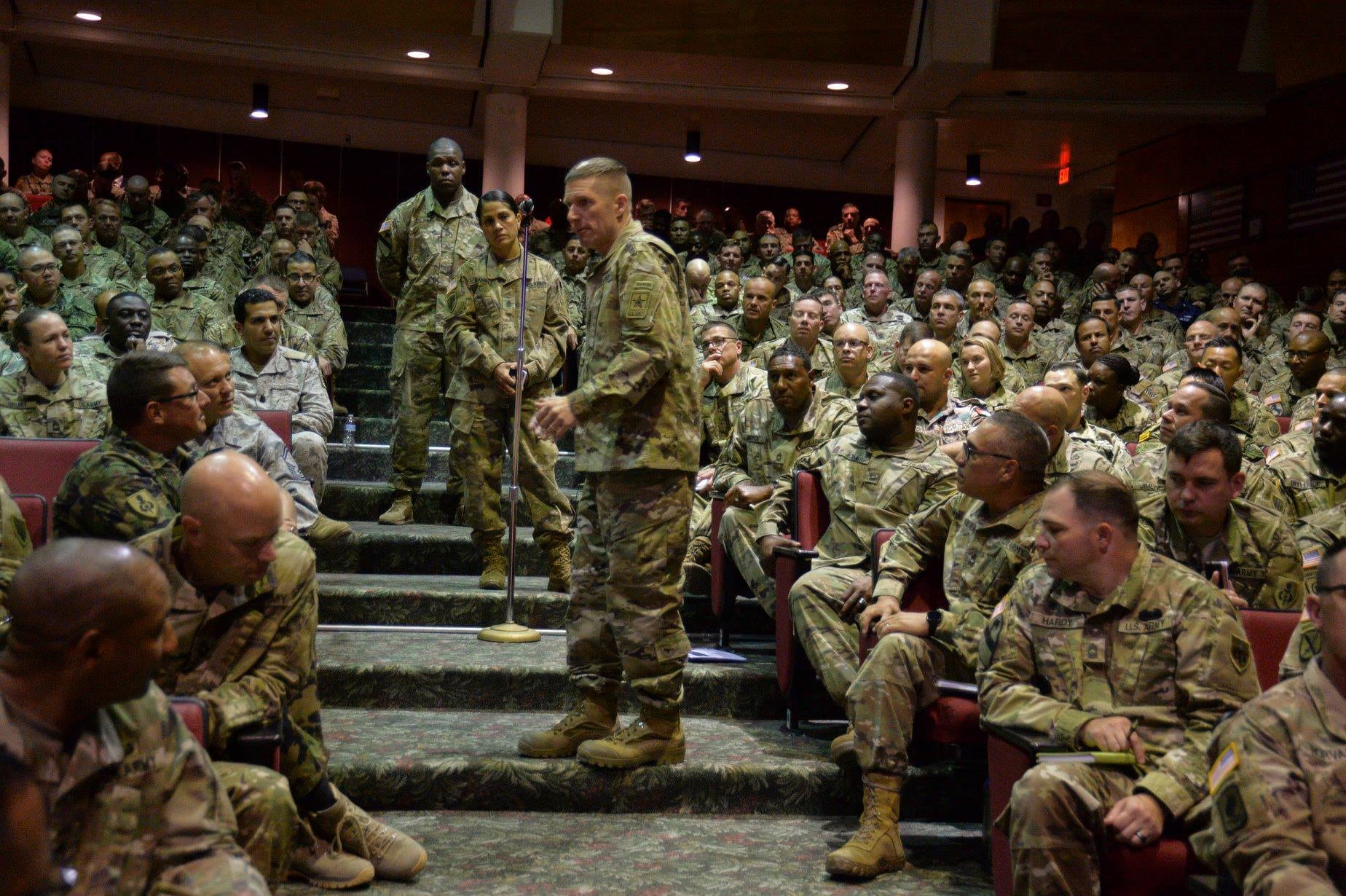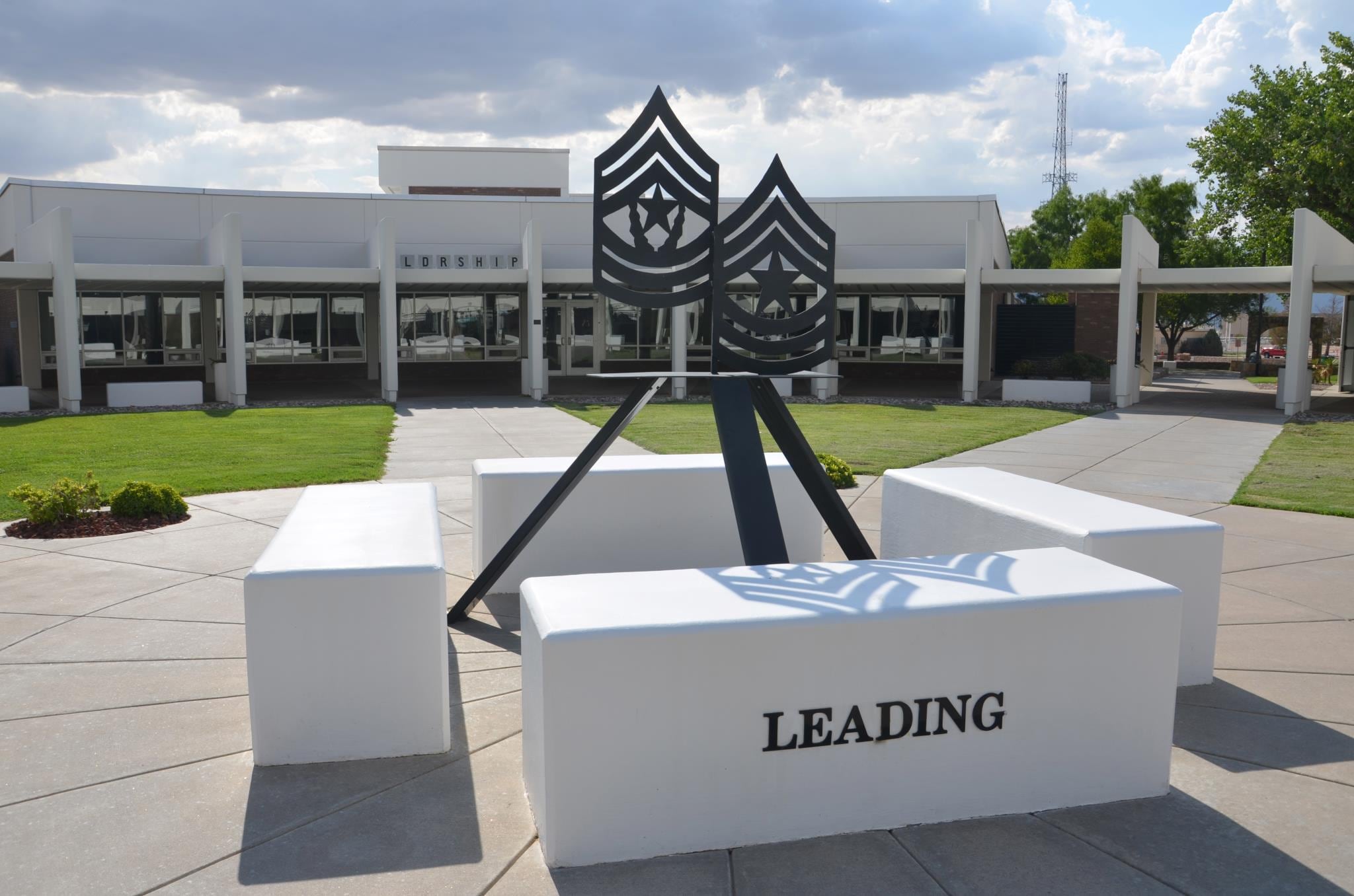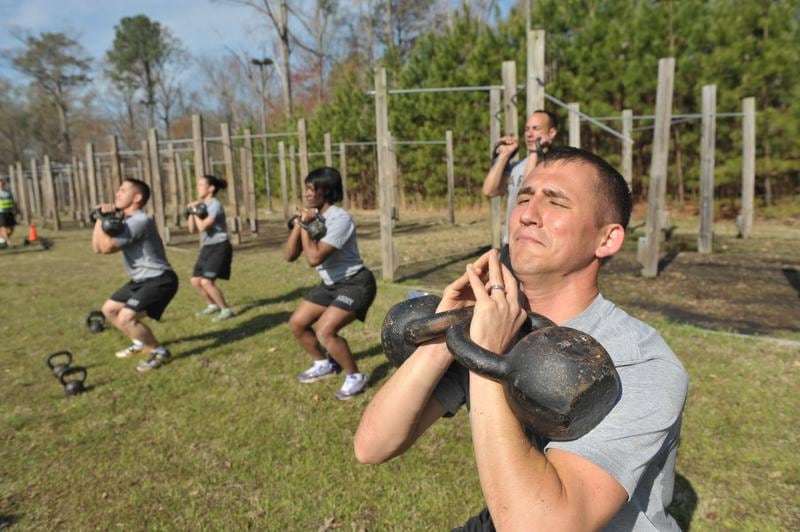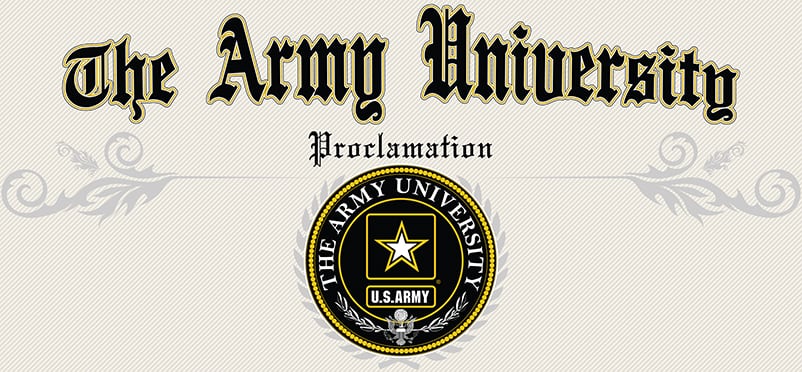If all goes according to plan, in the next few years, soldiers with pre-enlistment college credit or using Army tuition assistance funds to pursue degrees will be able to count their time in professional military education courses as credit hours toward higher education.
The first step comes in June, with the U.S. Army Sergeants Major Academy. Now, noncommissioned officers on their way to pinning on E-9 can count their coursework toward a bachelor of arts degree just by attending the leadership school.
“It was aligned to, basically, the type of management skills we are asking noncommissioned officers to perform now, and that’s leading soldiers and managing their units,” Charles Guyette, the director of policy and governance for the NCO Leadership Center of Excellence, told Army Times in May.

The move is part of a broader effort within Army education to find ways to recognize Army training as legitimate experience, applicable outside of the service. It’s an effort that brings enlisted education up to par with officer education, as some of those courses have been accredited since the 1970s.
It’s the “first time any NCO course will be accredited to a degree program,” Guyette said.
The degree officially comes from the Command and General Staff College at Fort Leavenworth, Kansas, which gets its credentials from the Higher Learning Commission.
The 10-month sergeants major course curriculum comes out to 47 credit hours of a standard, 120-hour bachelor’s degree, as a major in leadership and workforce development.
The USASMA classes only count toward the major’s core, though, so soldiers will still need to complete general education and elective courses on their own, likely using with tuition assistance dollars they already have access to.

The most recent class graduates on June 21, and out of 214 enrolled in the degree program, 87 of them will also receive a bachelor’s degree at their commencement ceremony, James Martin, dean of academics at the Command and General Staff College, told Army Times on June 6.
And he’s expecting a handful of others to finish their outside coursework and come back to Fort Bliss, Texas, to receive their degrees from USASMA, he said.
Leaders are already getting positive feedback about the program, Martin added, including from veterans, like the president of Kansas’ Emporia State University veterans group, where he recently attended a graduation.
“He said, "You know, I wish you’d been doing that when I went through … because I might have stayed in,' ” Martin recalled.
Much like the Army’s recent credentialing efforts, officials have stressed that providing more degrees and certificates actually entices soldiers to stay in, because they feel the Army is valuing them and investing in their futures, whenever they do choose to get out.
“We see this as a recruiting issue, a retention issue and a readiness issue,” he added.
It’s also a money saver.
“This program frees up tuition assistance dollars to be used somewhere else,” Martin said ― the equivalent of $12,000 worth of civilian college education.
For future sergeants major
If you already know you’re heading to USASMA, Guyette suggests gathering unofficial transcripts from any previous college courses.
“So we can do a pre-audit on their work, so we can have a better strategy to develop their degree plans when they get here,” he said. “What they need to focus on are those general education hours and those transfer or elective credits.”
In the past, it’s been somewhat common for sergeants major students to use the time at Fort Bliss to make progress on their civilian bachelor’s degrees, either through a purely online program or with a partner school in Texas.
Now, they can stick to one set of classes, if they’d like.
There is only one choice of major at USASMA, though, so the program is most ideally suited to soldiers who haven’t declared a major, or at least made much headway in the core curriculum of a previously chosen specialty.
“This is kind of for those soldiers who aren’t sure what they want to major in,” Army University Command Sgt. Maj. Teresa Duncan told Army Times.
Still, the leadership and workplace development major wasn’t chosen just because it fits with what the Army teaches already. It’s also a growing field.
“There are now Ph.D. programs out there in leadership,” she added.
And, that major codifies the training and experience enlisted soldiers have been getting for decades, but until now had to learn how to translate that on a resume so that civilian employers would understand it. A B.A. makes things much more clear.
However, Duncan said, recent graduates of USASMA cannot get retroactive credit for their coursework, because as part of the accreditation process, the academy fine-tuned its curriculum and revamped its education requirements for instructors.
There are also efforts underway to get the sergeants major distance learning course accredited, Martin said, so that non-resident active duty students ― as well as National Guard and Reserve master sergeants ― can get the benefit of credit hours.
“That’s probably two to three years away,” he said.
And everyone else
Though officer education has been accredited for decades, it’s only in the past few years that the Army has made the push to bring NCO education up to that standard. Two years ago, the Command and General Staff College got the go-ahead to start with USASMA.
“I would say that a lot of this stems from going to Army University,” Martin said. “What the university has been able to do is focus much more on enlisted education than officer education.”
Meanwhile, there are other efforts to get the remaining enlisted leader courses to feed into college-level degrees.
“There’s some initiatives from CGSC that are looking at other degree plans, through the military degree program,” Guyette said.
As it is now, a stint at the Advanced Leader Course or Senior Leader Course will go on a soldier’s Army University transcript, which they can present as part of a resume after they have separated and are looking for a civilian job.
“They’re looking at how they can create an associate’s degree early on in a soldier’s career, where, as they continue on through the NCO education system, that those things are drawn into their degree program that ultimately get into this B.A., and further on into a master’s program,” he said.
The first four leader courses are much shorter than the sergeants major variation, of course, so they would be worth much less credit. But they could still feed into an Army-centric degree, or be carried on to a post-discharge college education.
“Not a degree we would grant [like at USASMA], but predictability with other schools,” Martin said. “Okay, but how can we do that? And the question was, what would we do that in?”
Army University also has partnerships to credit soldiers from their enlisted training with some universities, he said, but full, national accreditation would make those hours count anywhere.
“Those students who are on tuition assistance, and if they start in the Army degree program, we’re looking for a way to give them predictability on where they can take those hours, and what they’ll take,” Martin said. “We’re setting up a path where those things will count, and they’ll be able to use them."
RELATED

Elsewhere, Army University is in the midst of a credentialing push to help out soldiers who aren’t on the academic track.
Since last year, soldiers have been able to earn free journeyman certificates for their hours in advanced individual training, with more than 100 eligible military occupation specialties ― and some of them are eligible for more than one. None, unfortunately, apply to 11B infantryman, the service’s largest career field.
However, the Army is exploring other programs that don’t have to be directly tied to a soldier’s current job. Last fall, Fort Hood, Texas, and the Texas National Guard began a limited-user test that gave soldiers $4,000 to complete civilian credentials.
“I’m happy to report that that limited user test is going well and we are working with the soldiers and our industry partners to provide them world-class training― and I assure you it will be world-class training, education, and of great value,” Sergeant Major of the Army Dan Dailey told the House Appropriations Subcommitee on Military Construction and Veterans Affairs in February.
Meghann Myers is the Pentagon bureau chief at Military Times. She covers operations, policy, personnel, leadership and other issues affecting service members.





